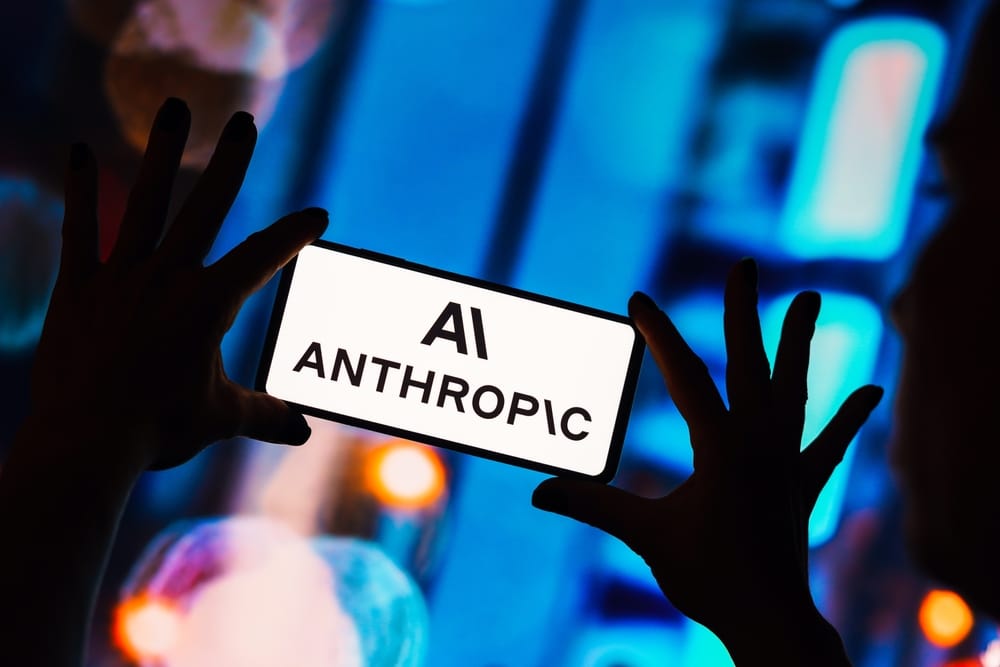As artificial intelligence firms keenly use each crucial data they can get, Claude AI developers claim they will not utilize their clients’ work to enhance their chatbots.
Anthropic, a top generative artificial intelligence startup, has claimed it will not utilize its customers’ information to train its large language model. Besides, it has claimed it will protect users who encounter copyright accusations.
OpenAI’s ex-researchers founded anthropic. It revised its commercial Terms of Service to clarify its aims and principles. By omitting its clients’ private information, the startup differentiates itself from competitors such as Amazon, OpenAI, and Meta, which utilize people’s information to enhance their systems.
Anthropic Exclude Client Information in Training Models
The revised terms show that Anthropic might not train models on client information from paid services. They also show that ‘as between the parties and to the scope allowed by applicable regulations, Anthropic agrees that clients own all output. Additionally, it denies the rights it acquires to the client content based on the terms.’
The terms also reveal that ‘Anthropic does not expect to acquire rights in client content under the terms’ and does not accord the parties access to the other’s intellectual property (IP) or content, by implication or other means.’
The revised legal document offers transparency and protection for the firm’s commercial customers. For instance, forms own all generated artificial intelligence outputs, enabling them to avoid possible intellectual property rows. Further, Anthropic protects customers from copyright accusations related to violating Claude-generated content.
This policy corresponds to Anthropic’s mission statement that artificial intelligence must be harmless, beneficial, and authentic. With public doubt heightening over generative AI’s ethics, the firm’s dedication to handling issues such as data privacy might enhance its competitiveness.
Users’ Information: Large Language Model’s Crucial Food
Large language models (LLMs) such as Llama, GPT-4, and Anthropic’s Claude are sophisticated artificial intelligence systems that comprehend and create human language. This is because they are trained on wide-text data. The models exploit neural networks and deep learning tactics to understand context, envisage word arrangements, and refine language.
During training, the LLMs improve their forecasts, formulate text, improve their conversation capability, or offer pertinent data.
Further, the LLMs’ efficacy relies on the volume and diversity of the information they are trained on. This improves their accuracy and contextual awareness as they learn from different language styles, patterns, and new data.
These are the reasons behind the importance of users’ data in training large language models. First, it ensures customization and improved user engagement by adapting to personal user styles and interactions. Nevertheless, this results in an ethical argument since artificial intelligence firms do not compensate users for this critical data utilized to train models.
Secondly, it ensures the models remain current with the most recent linguistic trends and user preferences, for instance, comprehending new slang.
A recent report revealed that Meta is training its imminent Llama-3 large language model using people’s data. Additionally, its new EMU models, which use text prompts to create videos and photos, were trained using publicly available information from social media.
Amazon Favor AI Training on Individual’s Interactions and Conversations
Amazon also disclosed that its imminent large language model, which might support an improved Alexa version, is also being trained on people’s interactions and conversations. Nevertheless, users can choose not to be a part of the training data, which is automatically set to assume that people agree to disclose the data.
An Amazon representative revealed that using actual-world requests to train Alexa is vital to providing clients with a personalized, accurate, and constantly improving experience. However, jointly, they offer clients control over their voice recordings, which are utilized to enhance the service. Besides, the representative said they always respect client preferences when training the models.
Technology behemoths are racing to unveil the most sophisticated artificial intelligence services, making responsible data practices vital to acquiring trust from the public. As such, Anthropic seeks to lead by example.
The ethical debate concerning obtaining more robust and suitable models at the expense of giving up personal data remains as widespread as it was several years ago. In the past, social media propagated the idea of users becoming the product for them to acquire free services.
Editorial credit: rafapress / Shutterstock.com
At Tokenhell, we help over 5,000 crypto companies amplify their content reach—and you can join them! For inquiries, reach out to us at info@tokenhell.com. Please remember, cryptocurrencies are highly volatile assets. Always conduct thorough research before making any investment decisions. Some content on this website, including posts under Crypto Cable, Sponsored Articles, and Press Releases, is provided by guest contributors or paid sponsors. The views expressed in these posts do not necessarily represent the opinions of Tokenhell. We are not responsible for the accuracy, quality, or reliability of any third-party content, advertisements, products, or banners featured on this site. For more details, please review our full terms and conditions / disclaimer.



